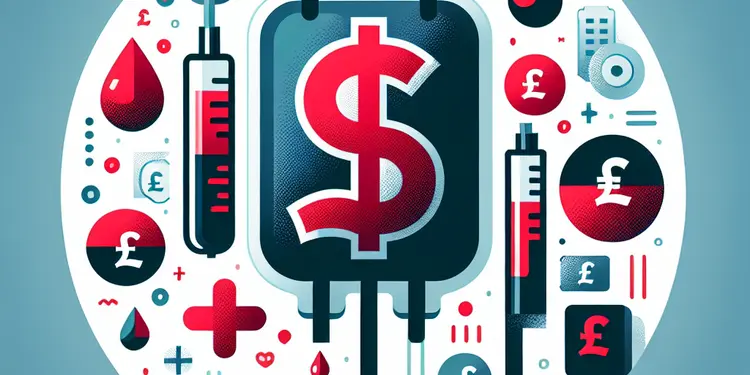
Find Help
More Items From Ergsy search
-
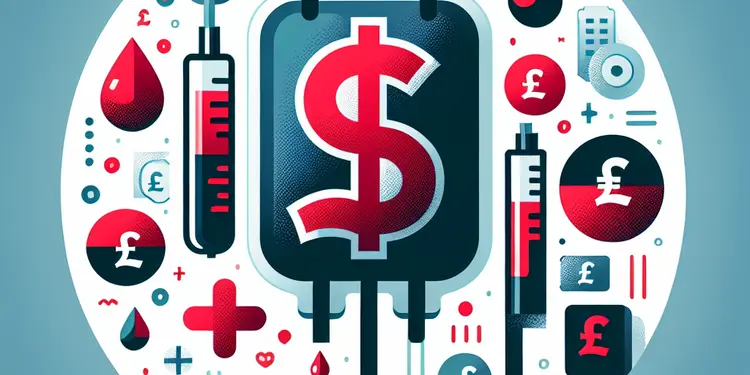
What are some common reasons blood transfusions are needed?
Relevance: 100%
-
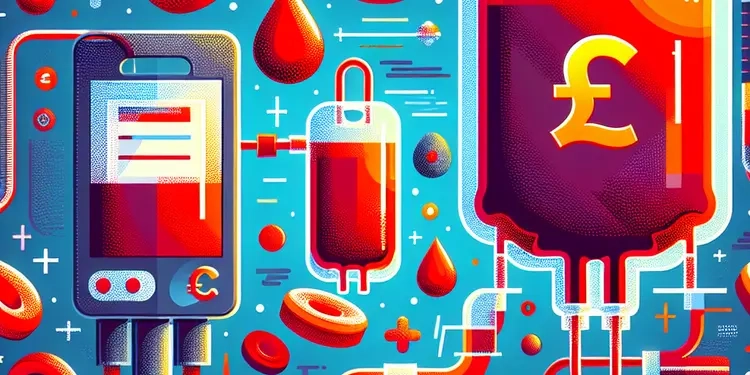
What is a blood transfusion?
Relevance: 78%
-

Blood Transfusion
Relevance: 76%
-
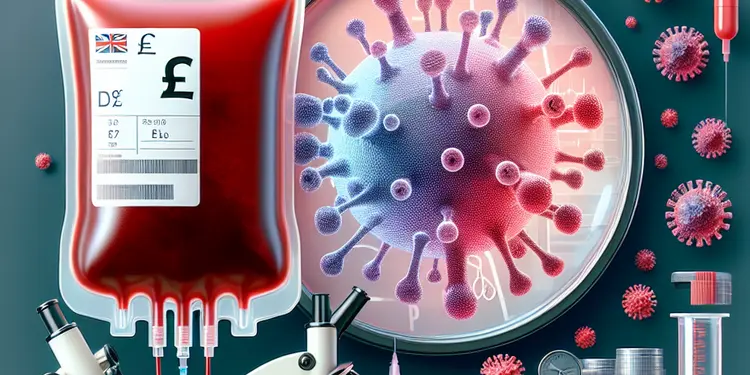
What is the most common disease transmitted by blood transfusion?
Relevance: 75%
-

Blood Product Transfusions
Relevance: 73%
-
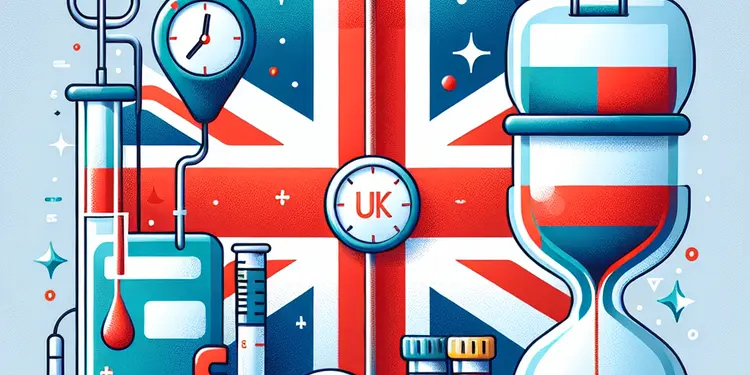
Is there an age limit for receiving blood transfusions?
Relevance: 71%
-

Are there risks associated with blood transfusions?
Relevance: 71%
-
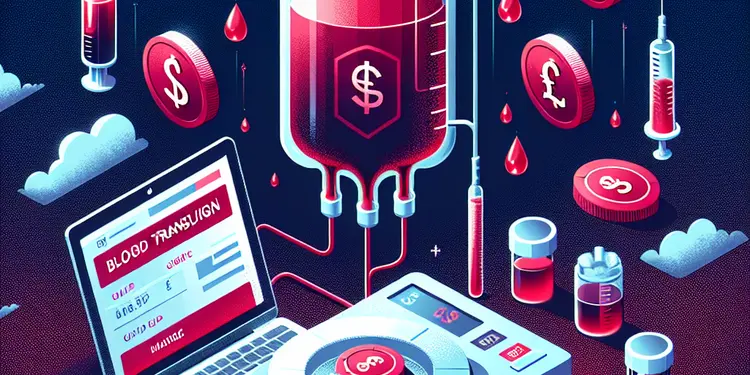
Why might someone need a blood transfusion?
Relevance: 70%
-
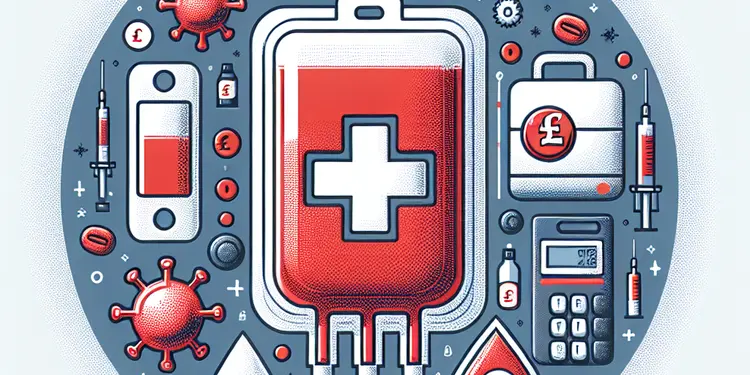
Is HTLV a risk in blood transfusions?
Relevance: 68%
-
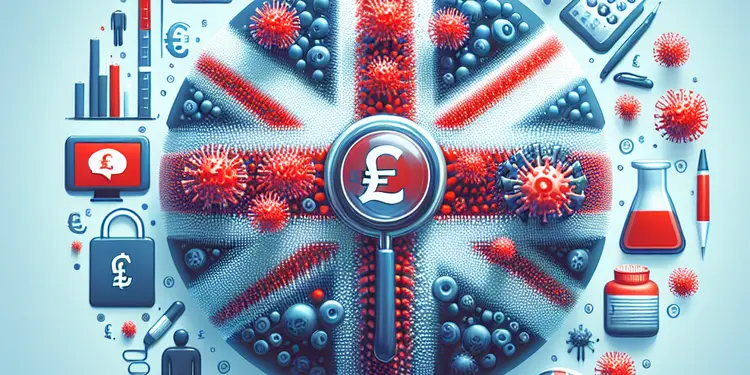
Is Zika virus screened for in blood transfusions?
Relevance: 67%
-
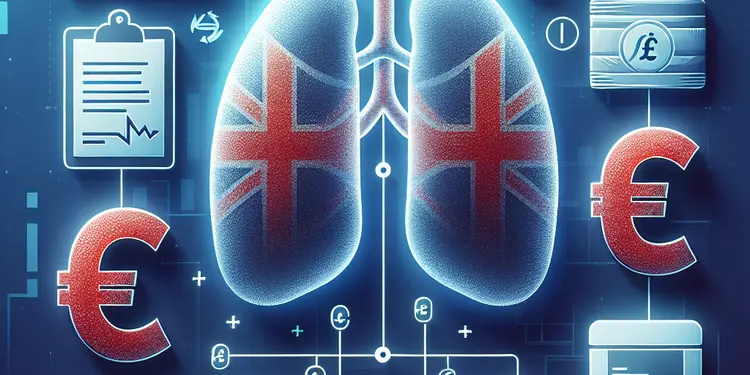
Is Hepatitis B a risk in blood transfusions?
Relevance: 66%
-
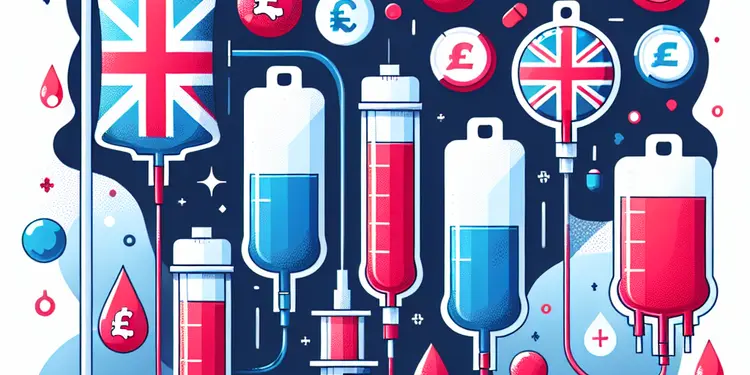
What types of blood products can be transfused?
Relevance: 66%
-
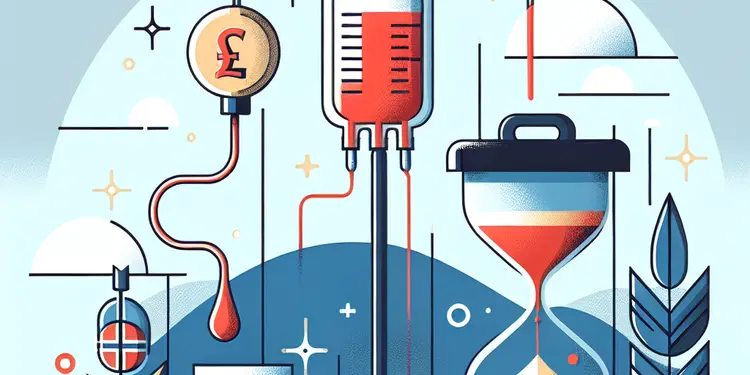
How long does a blood transfusion take?
Relevance: 65%
-

What diseases can be spread by blood transfusions?
Relevance: 64%
-

Is Chagas disease a concern with blood transfusions?
Relevance: 64%
-
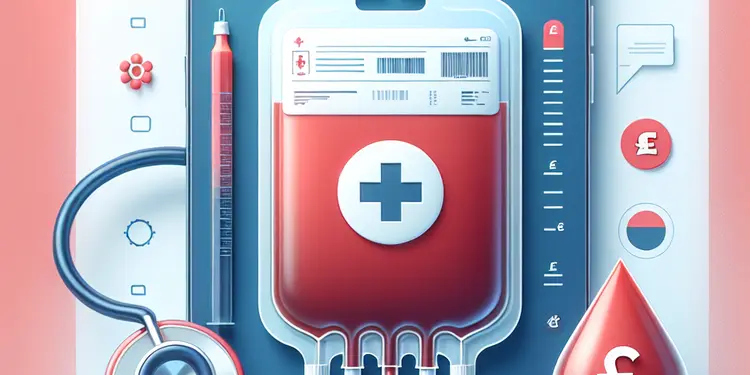
Can bacterial infections be transmitted through blood transfusion?
Relevance: 63%
-
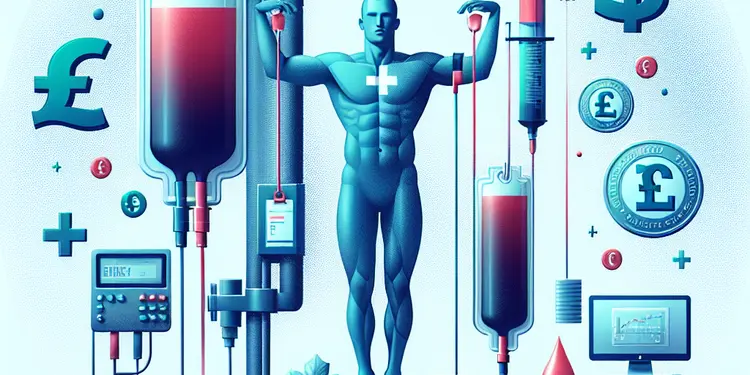
Can someone have a reaction to a mismatched blood transfusion?
Relevance: 63%
-

Are there any parasites that can be transmitted through blood transfusions?
Relevance: 63%
-
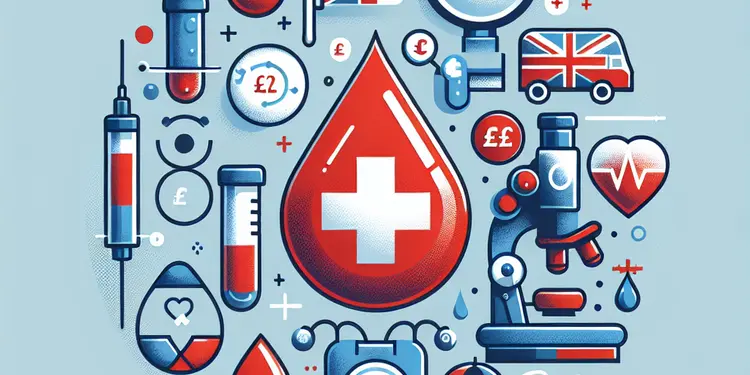
How do healthcare providers match blood for transfusions?
Relevance: 63%
-
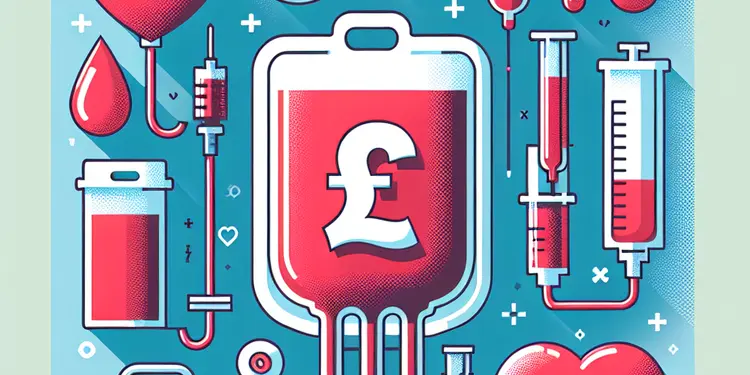
Can HIV be transmitted through blood transfusions?
Relevance: 62%
-
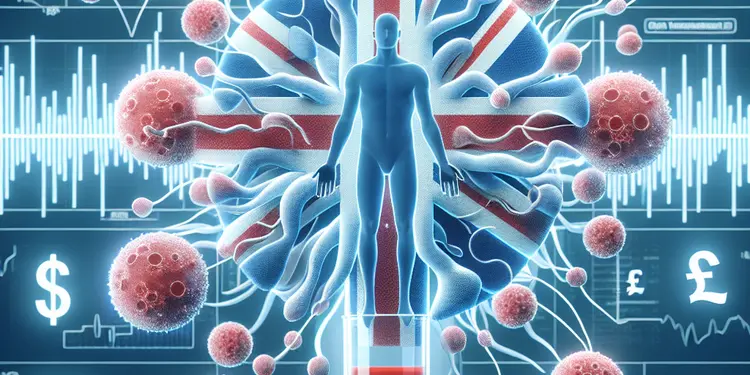
Can syphilis be transmitted via blood transfusion?
Relevance: 62%
-
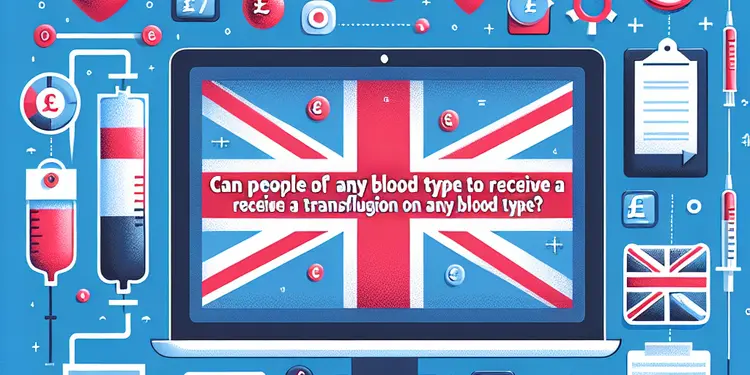
Can people of any blood type receive a transfusion of any blood type?
Relevance: 62%
-
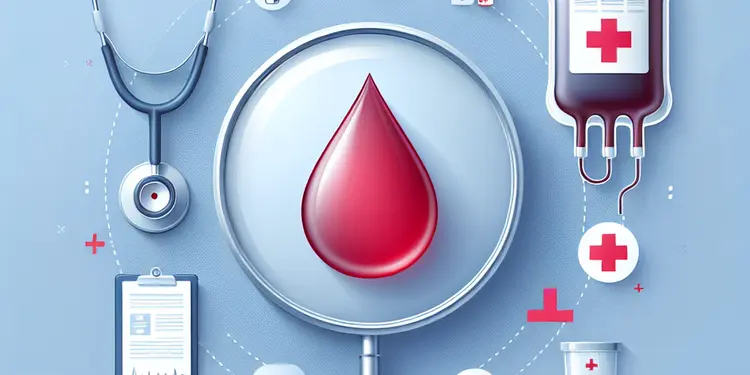
How do doctors determine how much blood is needed for a transfusion?
Relevance: 62%
-
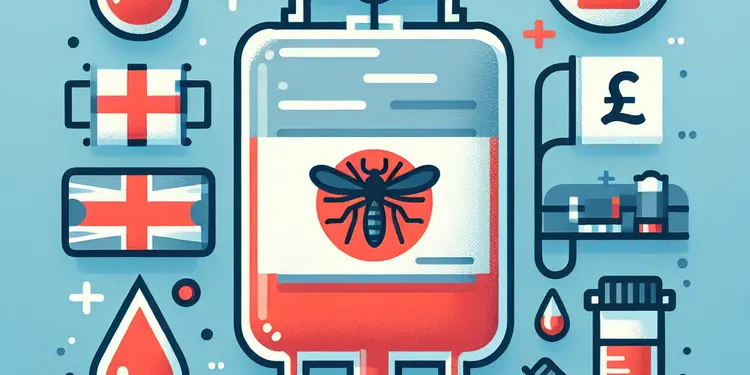
Can Dengue fever be transmitted through blood transfusions?
Relevance: 61%
-

Is malaria still a concern for blood transfusion safety?
Relevance: 60%
-
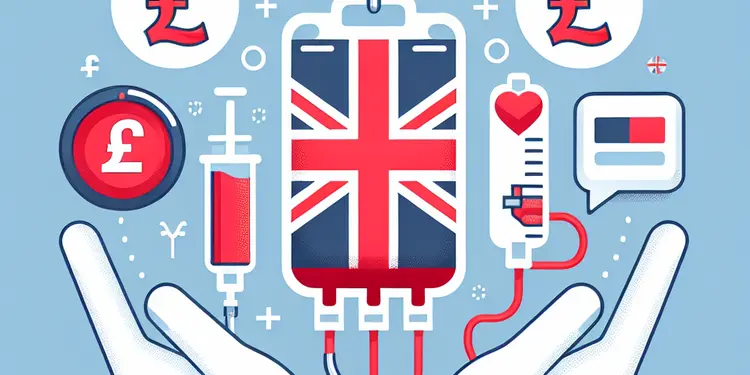
Can COVID-19 be transmitted through blood transfusions?
Relevance: 60%
-
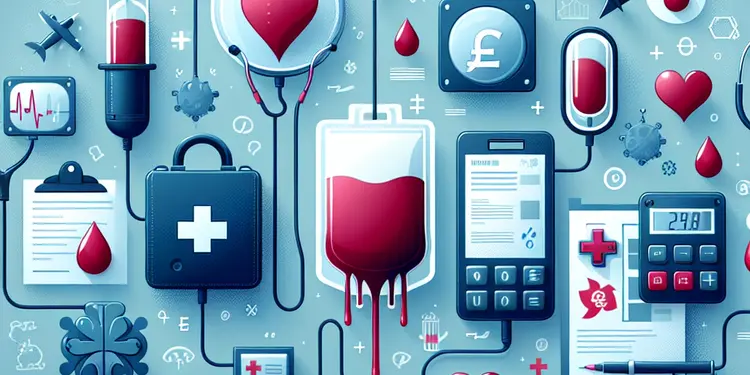
Can certain medical conditions prevent receiving blood transfusions?
Relevance: 60%
-
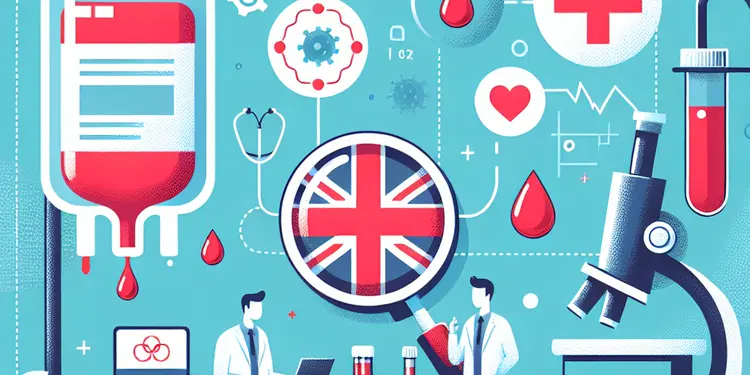
Can you get any prion diseases from blood transfusion?
Relevance: 57%
-
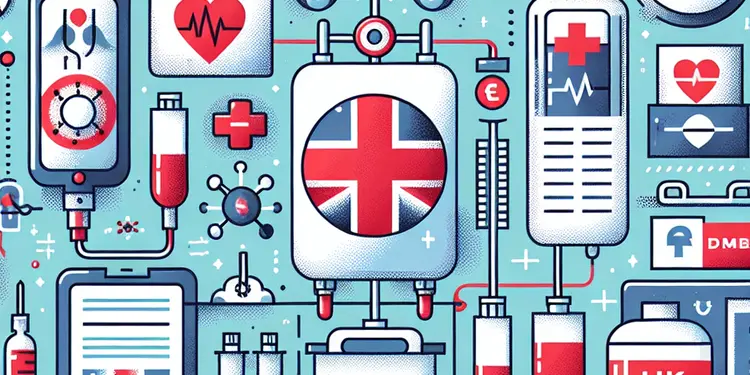
What measures are taken to prevent disease transmission in blood transfusions?
Relevance: 55%
-

What is plasma, and why might it be transfused?
Relevance: 54%
-
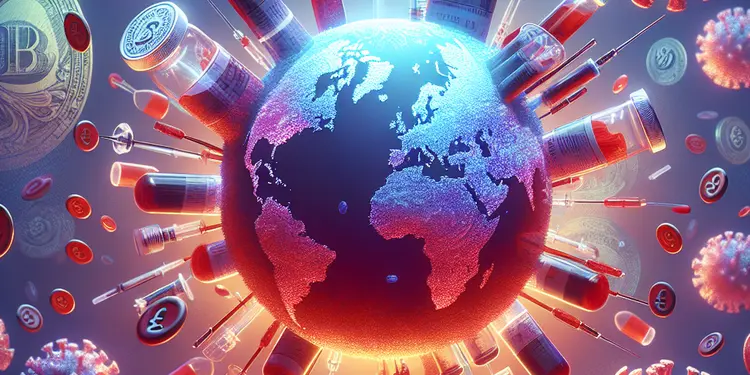
Can cytomegalovirus (CMV) be spread through transfusions?
Relevance: 52%
-
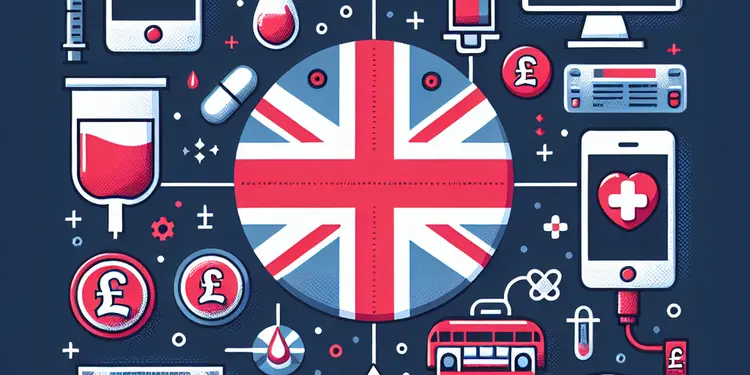
Is blood used for transfusions safe?
Relevance: 51%
-
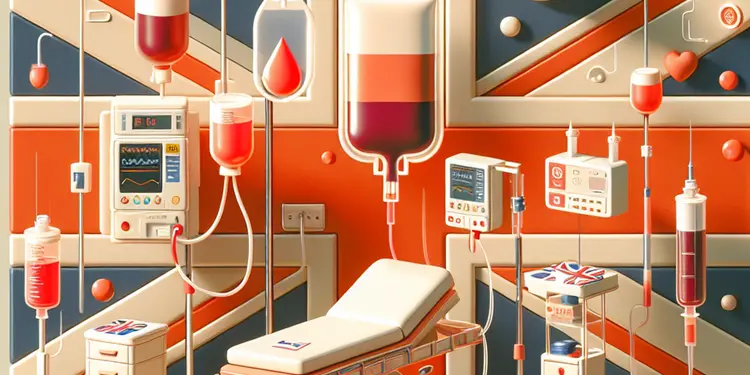
What should a patient expect after a blood transfusion?
Relevance: 48%
-

Are there global differences in screening for blood transfusions?
Relevance: 48%
-
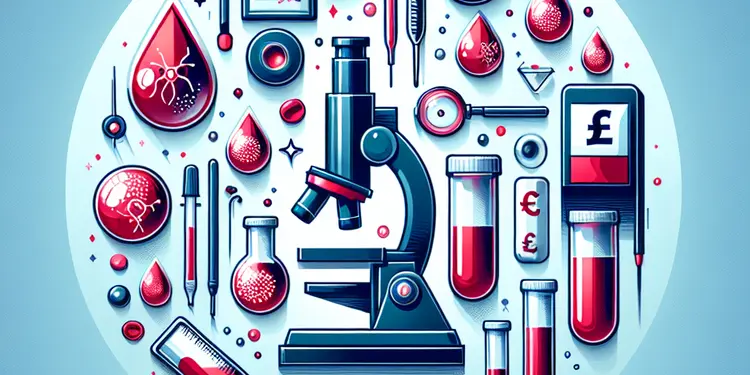
How is blood screened to prevent disease transmission?
Relevance: 46%
-

What are common reasons for product recalls?
Relevance: 45%
-
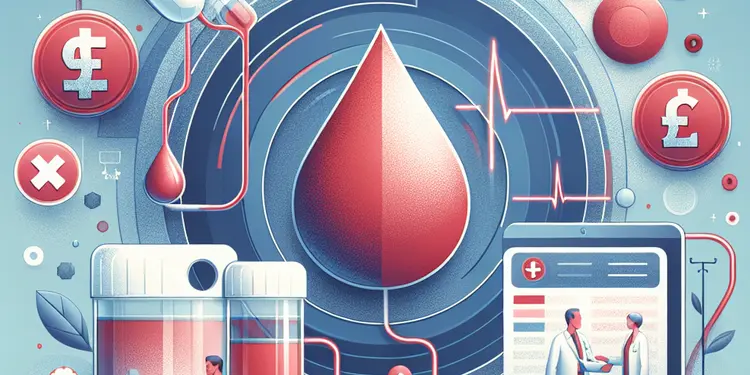
What kind of follow-up care is needed after a blood transfusion?
Relevance: 42%
-
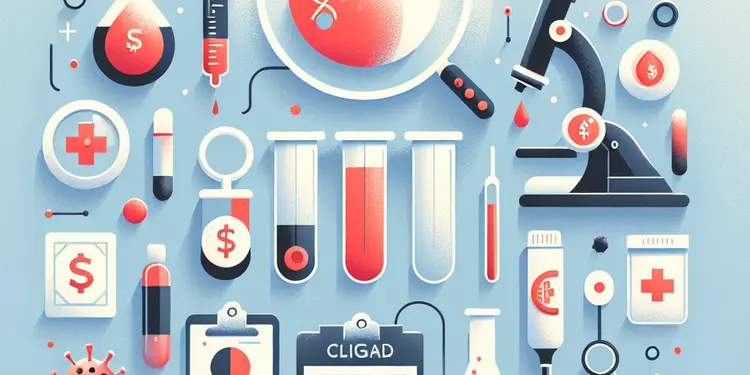
What other viruses are tested for in blood donations?
Relevance: 41%
-

Are new emerging pathogens a risk for blood safety?
Relevance: 39%
-
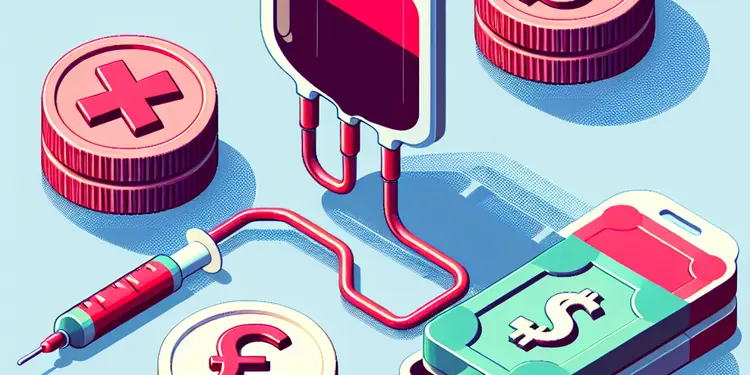
How is a blood transfusion performed?
Relevance: 35%
What are Blood Transfusions?
Blood transfusions are medical procedures in which donated blood or components of blood are given to a patient through an intravenous (IV) line. Blood transfusions play a critical role in saving lives and improving health in a variety of medical conditions. In the UK, blood donations are rigorously tested and processed to ensure safety for recipients.
Common Reasons for Blood Transfusions
1. Anaemia
Anaemia is a condition characterized by a deficiency of red blood cells or haemoglobin in the blood, resulting in fatigue and weakness among other symptoms. Blood transfusions may be necessary for people with severe anaemia, especially when it’s caused by chronic kidney disease, aplastic anaemia, or certain types of cancers. Transfusions help replenish the number of red blood cells, improving oxygen transport and alleviating symptoms.
2. Surgery
Many surgical procedures, particularly major surgeries such as heart surgery, organ transplants, or sizable operations involving the digestive system, may result in significant blood loss. In such cases, blood transfusions are often required to replace lost blood and maintain the patient’s blood volume and blood pressure during and after the procedure.
3. Trauma and Injuries
In emergencies involving severe trauma or injuries, such as those resulting from car accidents or serious falls, patients may experience significant blood loss. Immediate blood transfusions can be lifesaving by rapidly restoring the patient’s blood volume and stabilizing their condition. In these situations, the use of O negative blood, which is universal and can be given to any patient, is common until the patient's blood type is confirmed.
4. Blood Disorders
Certain blood disorders, such as sickle cell disease and thalassemia, often require regular blood transfusions. These genetic conditions affect the shape and functionality of red blood cells, leading to a variety of complications. Regular transfusions help manage symptoms, prevent painful crises, and improve the overall quality of life for individuals with these conditions.
5. Cancer Treatments
Cancer patients undergoing treatments like chemotherapy or radiation may suffer from reduced red blood cell production due to bone marrow suppression. This often leads to anaemia, necessitating blood transfusions. Additionally, patients with leukaemia and other cancers that affect the blood and bone marrow may require transfusions to maintain adequate levels of blood cells.
6. Pregnancy and Childbirth
Pregnant women may need blood transfusions due to both antenatal and postnatal complications. Conditions such as placenta previa or postpartum haemorrhage can lead to significant blood loss, requiring transfusions to ensure the safety of the mother. Additionally, women experiencing severe anaemia during pregnancy may benefit from transfusions to support their health and the development of the baby.
What are Blood Transfusions?
Blood transfusions are when doctors give someone blood from another person. They do this through a tube called an IV. Blood transfusions can save lives and help people feel better. In the UK, blood is checked carefully to make sure it's safe.
Common Reasons for Blood Transfusions
1. Anaemia
Anaemia means you don't have enough red blood cells. This can make you feel very tired and weak. Sometimes, people with anaemia need blood transfusions. This can happen if they have kidney problems, or certain types of cancer. The transfusion gives them more red blood cells, which helps them feel better and have more energy.
2. Surgery
During big operations, like heart surgery or organ transplants, people might lose a lot of blood. Blood transfusions help replace the lost blood. This keeps blood pressure normal and helps the patient heal properly.
3. Trauma and Injuries
In big accidents, like car crashes, people can lose a lot of blood quickly. Blood transfusions can save their lives by putting more blood back into their bodies. In emergencies, doctors often use O negative blood. Anyone can receive O negative blood until doctors know the person's blood type.
4. Blood Disorders
Some people have problems with their blood, like sickle cell disease or thalassemia. These problems mean their blood cells don’t work right. People with these conditions often need regular blood transfusions. This helps them feel better and avoid pain.
5. Cancer Treatments
Cancer treatments, like chemotherapy, can make it hard for the body to make enough red blood cells. This can lead to anaemia. People with cancer might need transfusions to help them feel stronger during their treatments.
6. Pregnancy and Childbirth
Pregnant women sometimes need blood transfusions, especially if there are problems during pregnancy or after the baby is born. Conditions like heavy bleeding can require transfusions to keep the mother safe. If a pregnant woman has very low red blood cells, transfusions can help her and her baby stay healthy.
--- **Tips to Understand Better:** - **Read Slowly:** Take your time and read each sentence carefully. - **Use a Dictionary:** Look up words you don't understand. - **Highlight Key Points:** Use a marker to highlight important sentences. - **Ask for Help:** It's okay to ask someone to explain things you don’t understand. **Tools that Might Help:** - **Audiobooks:** Listening can be easier than reading. - **Reading Aloud:** Hearing the words can make them clearer. - **Text-to-Speech Apps:** These can read the text for you.Frequently Asked Questions
What is a blood transfusion?
A blood transfusion is a medical procedure in which donated blood or components of blood are given to a patient through an intravenous (IV) line.
Do patients with anemia often need blood transfusions?
Yes, patients with severe anemia might require blood transfusions to increase their red blood cell count and improve oxygen delivery to tissues.
Why might a patient undergoing surgery need a blood transfusion?
Patients undergoing surgery may need a blood transfusion if they experience significant blood loss during the procedure.
Are blood disorders a common reason for needing a transfusion?
Yes, individuals with blood disorders like sickle cell disease or thalassemia may require regular blood transfusions to manage their conditions.
How does cancer treatment affect the need for blood transfusions?
Cancer treatments like chemotherapy and radiation can damage bone marrow, leading to low blood cell counts and necessitating transfusions.
Can trauma or injury lead to the need for a blood transfusion?
Yes, severe injuries from accidents can cause significant blood loss, requiring a transfusion to stabilize the patient.
Why might a patient with a gastrointestinal bleed require a transfusion?
Gastrointestinal bleeding can lead to significant blood loss, potentially requiring a transfusion to replace lost blood.
Is a transfusion ever needed for complications during childbirth?
Yes, excessive bleeding during childbirth, known as postpartum hemorrhage, might necessitate a blood transfusion.
Can liver disease patients require transfusions?
Patients with severe liver disease may require blood transfusions if their liver is not producing adequate clotting factors, leading to bleeding issues.
Do transplant patients sometimes need blood transfusions?
Yes, organ transplant surgeries can involve blood transfusions to ensure enough red blood cells and clotting factors are present during and after the procedure.
Are there specific types of anemia that commonly lead to transfusions?
Aplastic anemia, hemolytic anemia, and severe iron-deficiency anemia are types that often result in the need for blood transfusions.
Why is blood sometimes transfused in patients with kidney disease?
Chronic kidney disease can lead to anemia due to reduced erythropoietin production, sometimes requiring blood transfusions.
How do bleeding disorders affect the need for transfusions?
Bleeding disorders like hemophilia may necessitate transfusions of blood components such as clotting factors or platelets.
Can newborns require blood transfusions?
Yes, newborns, especially preterm ones, may need transfusions due to various conditions like anemia or Rh incompatibility.
Why might a patient with a clotting disorder need a transfusion?
Patients with clotting disorders may need plasma transfusions to provide missing clotting factors and prevent excessive bleeding.
Is a transfusion required after certain types of chemotherapy?
Yes, certain chemotherapy regimens kill rapidly dividing cells, including bone marrow cells, leading to pancytopenia and the need for transfusions.
How does sickle cell disease relate to blood transfusions?
Sickle cell disease patients often receive transfusions to alleviate anemia and reduce complications caused by sickled red blood cells.
Do patients with severe infections ever need transfusions?
Severe infections can lead to a condition called sepsis, which may cause coagulopathy and anemia, sometimes requiring transfusions.
Why might a person with an autoimmune condition need a blood transfusion?
Autoimmune conditions can cause hemolytic anemia, where the body's immune system destroys red blood cells, requiring transfusions.
Are transfusions used in treating burns?
Yes, severe burns can require transfusions due to significant blood vessel damage and loss of blood volume.
What is a blood transfusion?
A blood transfusion is when doctors give someone new blood to help them get better.
If someone is sick or hurt and loses a lot of blood, they might need this help.
The new blood goes into their body through a small tube in their arm.
This can help them feel better and get strong again.
Tools and tips to help:
- Use pictures or drawings to understand better.
- Ask a family member or friend to explain it to you.
- Watch a simple video for children on blood transfusions.
A blood transfusion is when a doctor or nurse gives someone blood from another person. They put the blood into the patient's body using a small tube, called an IV line.
Do people with low blood need more blood?
People with low blood, called "anemia," might need someone to give them blood. This is called a "blood transfusion." It helps them feel better.
Tools to help understand:
- Ask a doctor or nurse for help.
- Look at pictures or videos about blood transfusions.
- Talk with family or friends who know about it.
Yes, people with bad anemia might need to get new blood. This helps them have more red blood cells and get more oxygen to their body.
Why might someone need more blood during surgery?
When a person has an operation, they might lose some blood. If they lose too much blood, they might need extra blood. This is called a blood transfusion.
Here are some reasons why someone might need more blood during surgery:
- If they bleed a lot during the operation.
- If their body does not have enough blood before the operation.
Having enough blood helps the body work well. It keeps you strong and healthy.
It's important to ask the doctor if you have questions. You can also use pictures or videos to help you understand. Talking with family or friends who know about these things can be helpful too.
When people have an operation, they might lose a lot of blood. If this happens, they may need a blood transfusion to help them get better.
For more help understanding this information, you can use tools like audiobooks or screen readers that read the words out loud. You can also talk to someone who can explain it to you in a way that makes sense.
Do people often need blood transfusions because of blood problems?
People with blood problems like sickle cell disease or thalassemia may need to get blood from a doctor often to help them feel better.
Does cancer treatment mean you need more blood transfusions?
Cancer treatment can sometimes make you need more blood. Doctors might give you a blood transfusion. This helps if your body needs extra blood.
Here are ways people can get help:
- Doctors will check your blood.
- Ask a nurse if you have questions.
- Family and friends can always support you.
Some cancer treatments can hurt the inside of your bones, called bone marrow. This can make your blood cells go down. You might need help with special blood from a hospital. This is called a blood transfusion.
Can getting hurt mean you need more blood?
Sometimes, if you get hurt really badly, you might lose a lot of blood. When this happens, doctors might need to give you more blood from someone else. This is called a blood transfusion.
If you're worried, you can ask a doctor or a nurse to help explain it to you. Using pictures or videos can also help you understand better.
Yes, bad injuries from accidents can make you lose a lot of blood. You might need more blood from someone else to help you get better.
Why might a person with a stomach or gut bleed need more blood?
When someone bleeds inside their stomach or gut, they can lose a lot of blood.
If they lose too much blood, they might need extra blood to feel better again. This is called a "transfusion."
Doctors give them the blood through a small tube in their arm.
This helps the person to be strong and healthy.
Using pictures or simple stories can help you understand more. Ask someone you trust to explain it to you if needed.
Bleeding in the tummy can cause you to lose a lot of blood. You might need new blood from a donor to make up for what you lost.
Do doctors ever need to give blood during childbirth problems?
Yes, too much bleeding when a baby is born is called a postpartum hemorrhage. If this happens, the doctor might need to give a blood transfusion.
Do people with liver disease need blood transfusions?
Sometimes people who are sick with liver problems might need more blood. This is called a blood transfusion.
Here are some tools and tips that might help understand more:
- Ask a doctor or nurse to explain.
- Watch videos about liver disease.
- Use picture books to learn about the body.
If someone has bad liver problems, they might need extra blood. This is because their liver isn't making enough special stuff to help their blood clot. Clotting helps stop bleeding. So, they might bleed more easily and need more blood.
Do people who have transplants need blood transfusions?
When a person gets a new organ, like a heart or kidney, they may need extra help. Sometimes, doctors give them more blood.
This is called a blood transfusion.
Doctors do this to help the person get better.
If you want to understand more, you can:
- Ask a doctor or nurse to explain.
- Look at pictures or videos about transplants.
Yes, when doctors do organ transplants, they might give the person extra blood. This helps make sure the body has enough blood cells and things that help stop bleeding during and after the surgery.
Do some types of anemia often need blood transfusions?
These are three types of illnesses where people might need extra blood to get better:
- Aplastic anemia.
- Hemolytic anemia.
- Severe iron-deficiency anemia.
People with these conditions may need blood transfusions. This means they get blood from someone else to help them feel better.
To understand this better, you can use pictures or talk to a helper, like a teacher or a doctor. They can explain it in a simple way too. If reading is difficult, try listening to an audio version of this information.
Why do people with kidney problems sometimes get blood?
Some people with sick kidneys need new blood. Kidneys help keep our blood healthy. When kidneys are sick, blood can be low.
Doctors give new blood to help people feel better and have more energy.
If you find reading hard, try using tools that read out loud. They can help!
Chronic kidney disease is when your kidneys are not working well for a long time. This can make you feel tired because your body does not make enough of something called erythropoietin. Erythropoietin helps your body make red blood cells. Without it, you might need to get extra blood from a doctor in something called a blood transfusion.
If you need help with reading, try using audiobooks or ask someone to read with you. Highlighting words can also help you focus.
How do bleeding disorders affect the need for transfusions?
Bleeding disorders make people bleed more than usual. This means that they lose blood easily. Because of this, they might need extra blood from someone else. This extra blood is called a transfusion.
If you want to know more, you can:
- Ask your doctor questions. They can help explain.
- Use simple videos online that talk about blood and transfusions.
Some people have problems with bleeding, like hemophilia. They might need blood transfusions. This means they get things from blood, like special parts that help stop bleeding.
Do newborn babies need blood transfusions?
Sometimes, newborn babies need extra blood. This is called a blood transfusion. Doctors give them more blood to help them get better. If you want more help, you can ask a doctor or a nurse to explain it to you. It can also help to watch videos or look at pictures about blood transfusions.
Yes, newborn babies sometimes need blood transfusions. This can happen because of problems like low iron in their blood (anemia) or if their blood does not match their mom's in a special way (Rh incompatibility).
It can help to use simple words and break information into small parts. Tools like audiobooks or picture books can also make it easier to understand.
Why might someone with a blood clotting problem need more blood?
Some people have problems with blood clotting. This means their blood does not stop bleeding easily.
They might need extra blood from another person. This is called a blood transfusion. The transfusion helps them by giving their body more healthy blood.
Tools like picture charts or apps can help explain this better. Friends and family can also help understand this by talking it through.
Some people have trouble with blood clotting. They might need a plasma transfusion. This helps give them what their blood needs to stop bleeding too much.
Do you need new blood after some kinds of cancer treatment?
Yes, some chemotherapy treatments attack cells that grow quickly. This includes cells in the bone marrow. This can lead to fewer blood cells, and sometimes you might need a blood transfusion.
Why do people with sickle cell disease need blood transfusions?
Sickle cell disease makes red blood cells shaped like sickles (like a banana shape). These cells can get stuck in small blood vessels and cause pain.
A blood transfusion gives a person new red blood cells. This can help the body work better and stop pain.
If you have sickle cell disease, you might need a blood transfusion to feel better.
You can use pictures or videos to learn more about sickle cell disease and blood transfusions. Talking to a doctor can also help you understand better.
People who have sickle cell disease sometimes need blood transfusions. This helps with anemia and stops problems caused by sickle-shaped red blood cells.
Do people with bad infections need new blood?
Sometimes, when people are very sick with an infection, they might need new blood. This is called a blood transfusion.
Here are some tips to help understand:
- Ask a doctor or nurse if you have questions. They can help explain.
- Use pictures or drawings to see how blood helps the body.
- Watch a simple video about how the body fights germs.
Bad infections can make you very sick. This is called sepsis. Sepsis can make your blood not work right.
Sepsis can also make you have anemia, which means not enough healthy red blood cells. You might need a blood transfusion to help.
If you find this hard to read, try using tools like text-to-speech apps or audiobooks. They read the words out loud to you and can make it easier to understand.
Why does someone who is sick with an autoimmune disease need new blood?
Some people have a sickness called an autoimmune disease. This means their body fights itself by mistake. This can hurt their blood. They might need new blood from another person. This is called a blood transfusion. It helps them feel better and get strong again.
If you need help reading, you can use pictures or ask someone to explain it to you. Listening to a story can also help you understand better.
Some health problems make the body attack itself. This can break red blood cells, which carry oxygen in the blood. When this happens, people might need new blood from a transfusion to feel better.
Do doctors give blood to help with burns?
Yes, bad burns can need blood transfusions because they can hurt blood vessels and cause you to lose a lot of blood.
Useful Links
This website offers general information and is not a substitute for professional advice.
Always seek guidance from qualified professionals.
If you have any medical concerns or need urgent help, contact a healthcare professional or emergency services immediately.
Some of this content was generated with AI assistance. We’ve done our best to keep it accurate, helpful, and human-friendly.
- Ergsy carfully checks the information in the videos we provide here.
- Videos shown by Youtube after a video has completed, have NOT been reviewed by ERGSY.
- To view, click the arrow in centre of video.
- Most of the videos you find here will have subtitles and/or closed captions available.
- You may need to turn these on, and choose your preferred language.
- Go to the video you'd like to watch.
- If closed captions (CC) are available, settings will be visible on the bottom right of the video player.
- To turn on Captions, click settings .
- To turn off Captions, click settings again.
More Items From Ergsy search
-

What are some common reasons blood transfusions are needed?
Relevance: 100%
-

What is a blood transfusion?
Relevance: 78%
-

Blood Transfusion
Relevance: 76%
-

What is the most common disease transmitted by blood transfusion?
Relevance: 75%
-

Blood Product Transfusions
Relevance: 73%
-

Is there an age limit for receiving blood transfusions?
Relevance: 71%
-

Are there risks associated with blood transfusions?
Relevance: 71%
-

Why might someone need a blood transfusion?
Relevance: 70%
-

Is HTLV a risk in blood transfusions?
Relevance: 68%
-

Is Zika virus screened for in blood transfusions?
Relevance: 67%
-

Is Hepatitis B a risk in blood transfusions?
Relevance: 66%
-

What types of blood products can be transfused?
Relevance: 66%
-

How long does a blood transfusion take?
Relevance: 65%
-

What diseases can be spread by blood transfusions?
Relevance: 64%
-

Is Chagas disease a concern with blood transfusions?
Relevance: 64%
-

Can bacterial infections be transmitted through blood transfusion?
Relevance: 63%
-

Can someone have a reaction to a mismatched blood transfusion?
Relevance: 63%
-

Are there any parasites that can be transmitted through blood transfusions?
Relevance: 63%
-

How do healthcare providers match blood for transfusions?
Relevance: 63%
-

Can HIV be transmitted through blood transfusions?
Relevance: 62%
-

Can syphilis be transmitted via blood transfusion?
Relevance: 62%
-

Can people of any blood type receive a transfusion of any blood type?
Relevance: 62%
-

How do doctors determine how much blood is needed for a transfusion?
Relevance: 62%
-

Can Dengue fever be transmitted through blood transfusions?
Relevance: 61%
-

Is malaria still a concern for blood transfusion safety?
Relevance: 60%
-

Can COVID-19 be transmitted through blood transfusions?
Relevance: 60%
-

Can certain medical conditions prevent receiving blood transfusions?
Relevance: 60%
-

Can you get any prion diseases from blood transfusion?
Relevance: 57%
-

What measures are taken to prevent disease transmission in blood transfusions?
Relevance: 55%
-

What is plasma, and why might it be transfused?
Relevance: 54%
-

Can cytomegalovirus (CMV) be spread through transfusions?
Relevance: 52%
-

Is blood used for transfusions safe?
Relevance: 51%
-

What should a patient expect after a blood transfusion?
Relevance: 48%
-

Are there global differences in screening for blood transfusions?
Relevance: 48%
-

How is blood screened to prevent disease transmission?
Relevance: 46%
-

What are common reasons for product recalls?
Relevance: 45%
-

What kind of follow-up care is needed after a blood transfusion?
Relevance: 42%
-

What other viruses are tested for in blood donations?
Relevance: 41%
-

Are new emerging pathogens a risk for blood safety?
Relevance: 39%
-

How is a blood transfusion performed?
Relevance: 35%


